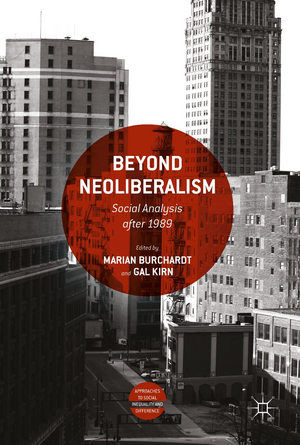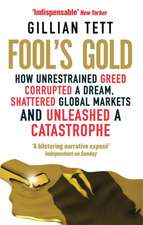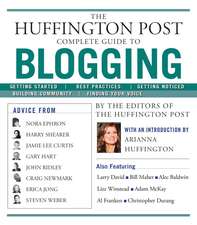Beyond Neoliberalism: Social Analysis after 1989: Approaches to Social Inequality and Difference
Editat de Marian Burchardt, Gal Kirnen Limba Engleză Hardback – 27 feb 2017
This book is a result of discussions at and support from the Irmgard Coninx Fundation.
| Toate formatele și edițiile | Preț | Express |
|---|---|---|
| Paperback (1) | 203.20 lei 6-8 săpt. | |
| Springer International Publishing – 13 iul 2018 | 203.20 lei 6-8 săpt. | |
| Hardback (1) | 586.70 lei 6-8 săpt. | |
| Springer International Publishing – 27 feb 2017 | 586.70 lei 6-8 săpt. |
Preț: 586.70 lei
Preț vechi: 690.24 lei
-15% Nou
Puncte Express: 880
Preț estimativ în valută:
112.28€ • 116.79$ • 92.69£
112.28€ • 116.79$ • 92.69£
Carte tipărită la comandă
Livrare economică 15-29 aprilie
Preluare comenzi: 021 569.72.76
Specificații
ISBN-13: 9783319455891
ISBN-10: 3319455893
Pagini: 269
Ilustrații: VII, 279 p.
Dimensiuni: 148 x 210 x 18 mm
Greutate: 0.49 kg
Ediția:1st ed. 2017
Editura: Springer International Publishing
Colecția Palgrave Macmillan
Seria Approaches to Social Inequality and Difference
Locul publicării:Cham, Switzerland
ISBN-10: 3319455893
Pagini: 269
Ilustrații: VII, 279 p.
Dimensiuni: 148 x 210 x 18 mm
Greutate: 0.49 kg
Ediția:1st ed. 2017
Editura: Springer International Publishing
Colecția Palgrave Macmillan
Seria Approaches to Social Inequality and Difference
Locul publicării:Cham, Switzerland
Cuprins
1. De-theorizing in order to Re-theorize Emergent Alignments. A Rumination.- 2. A Triple Movement? Parsing the Politics of Crisis after Polanyi.- 3. The Critique of Transitologist Discourse, or what is to be done with “post”?.- 4. A Fractured Globe: Anthropology and Narration after 1989.- 5. Postcolonial Criticism after 1989.- 6. Cash and Livelihood in Soft Currency Economies: challenges for research.- 7. Economic Anthropology, Islamic Finance, and the Limits of Capitalism.- 8. Religion and Secularism in Neoliberal Capitalism.- 9. The Last Men before the Last: a Russian messianic revival in the twilight of history.- 10. The End of Ideology? Re-conceptualizing Citizenship and Culture in a Post-(political) Place World.- 11. Humanitarianism after the Cold War: The Case of Haiti.- 12. The uneasy relationship between ‘China’ and ‘Globalization’ in post-Cold War scholarship.- 13. New Human Rights Paradigms in the Neo-Liberal Age.- 14. 1989 as a Historical Caesura in the Study of History.
Notă biografică
Marian Burchardt is a research fellow at the Max Planck Institute for the Study of Religious and Ethnic Diversity in Göttingen, Germany. He is also the author of Faith in the Time of AIDS: Religion, Biopolitics and Modernity in South Africa (2015), and is a co-editor of Multiple Secularities Beyond the West (2015), After Integration (2015), and Topographies of Faith (2013).
Gal Kirn is a Humboldt postdoctoral fellow at Humboldt University, Germany. He is also the author of Ruptures and Contradictions of Market Socialism (2015), and is a co-editor of Encountering Althusser (2012), Yugoslav Black Wave Cinema and its Transgressive Moments (2012), and Postfordism and its Discontents (2010).
Textul de pe ultima copertă
This book explores how changes that occurred around 1989 shaped the study of the social sciences, and scrutinizes the impact of the paradigm of neoliberalism in different disciplinary fields. The contributors examine the ways in which capitalism has transmuted into a seemingly unquestionable, triumphant framework that globally articulates economics with epistemology and social ontology. The volume also investigates how new narratives of capitalism are being developed by social scientists in order to better understand capitalism’s ramifications in various domains of knowledge. At its heart, Beyond Neoliberalism seeks to unpack and disaggregate neoliberalism, and to take readers beyond the analytical limitations that a traditional framework of neoliberalism entails.
Caracteristici
Represents the first comprehensive collection of works that does not analyze just one discipline in relation to 1989 and the "end of history" Includes not only analyses of changed reality, but analyses of the changes within academia and scholarship Examines events that took place before 1989 which contributed to the fall of the Soviet Union






















